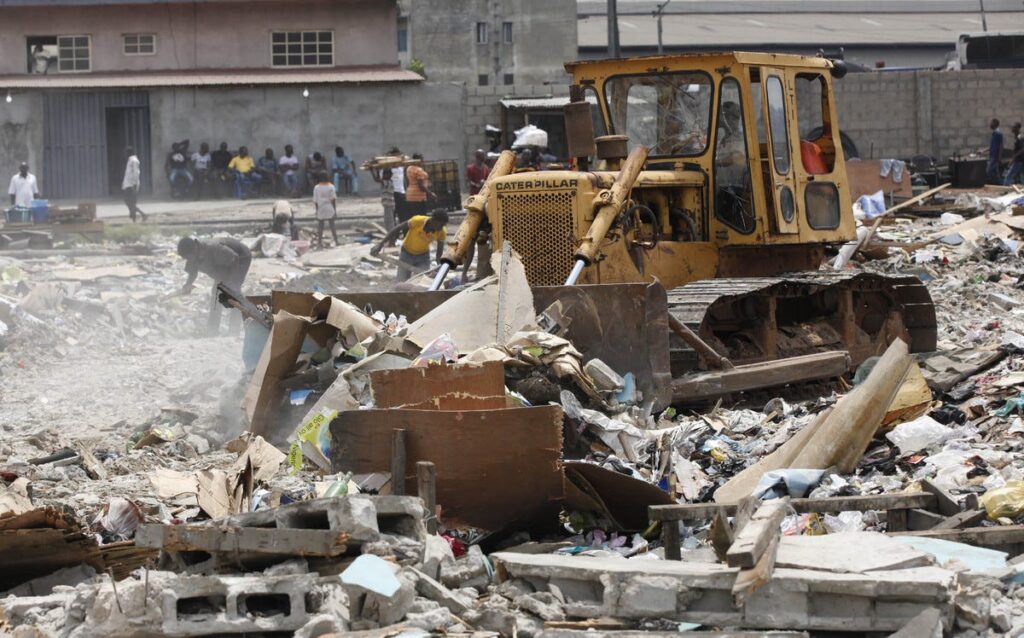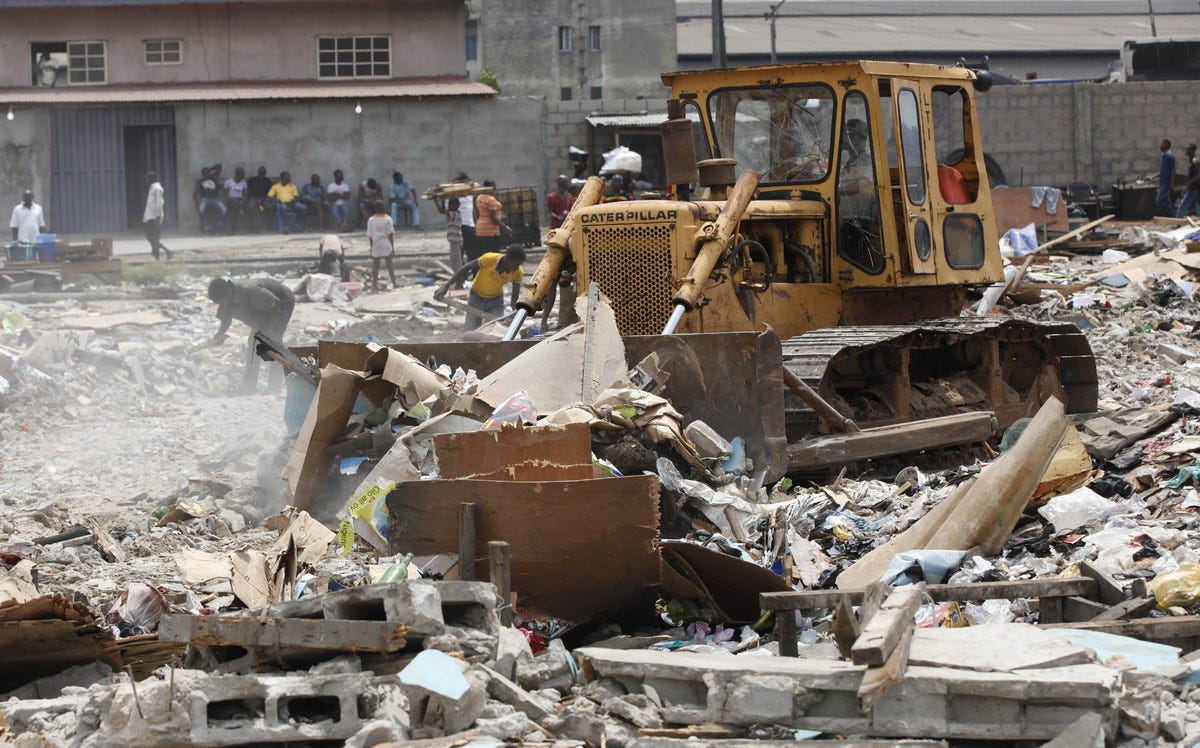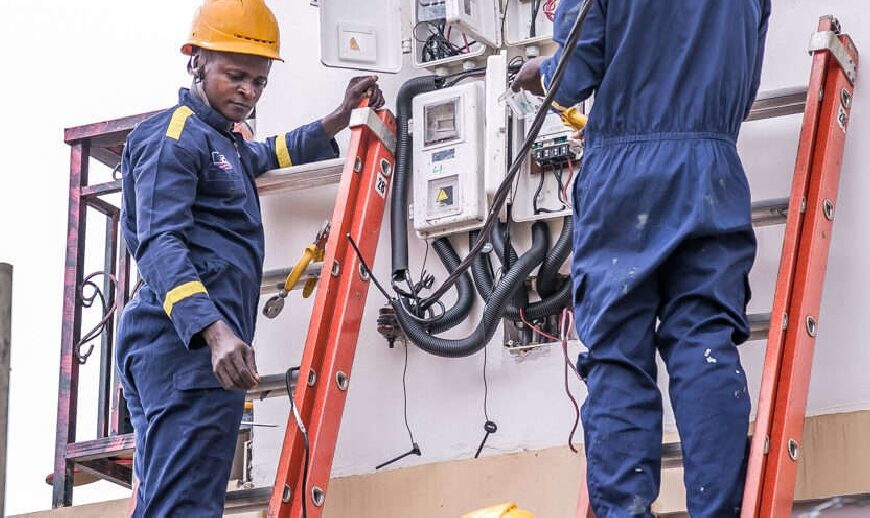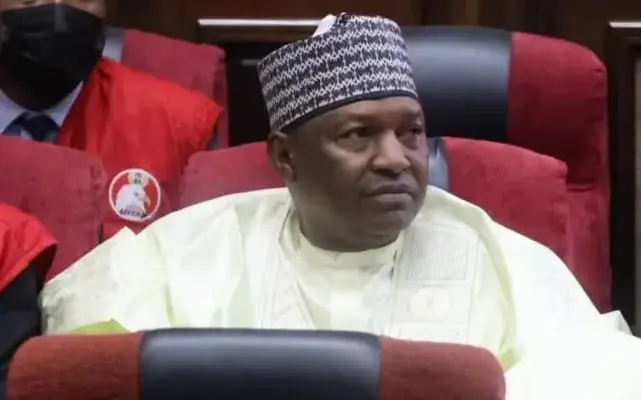In recent months, Lagos State has witnessed an intensification of house demolitions across several local government areas, including Lagos Island, Lekki, and Ikoyi. These actions, undertaken by the state’s Environmental and Special Offences Unit (Task Force) and other agencies, have sparked heated debates about the underlying motives: are they genuinely aimed at enforcing environmental regulations and urban planning, or do they mask land grab attempts?

The Official Narrative
The Lagos State Government maintains that demolitions are part of a broader effort to protect the environment, prevent flooding, and enforce urban planning regulations. Officials argue that illegal structures, especially in flood-prone areas or designated green zones, exacerbate environmental degradation and threaten public safety.
According to government sources:
- Many demolitions target buildings constructed without planning approval or in violation of building codes.
- The clearance of such structures is framed as a preventive measure against future disasters like flooding, erosion, and environmental pollution.
- Residents are usually warned in advance and given time to relocate, though critics argue these notices are sometimes insufficient.
Public Outcry and Allegations of Land Grab
Despite official explanations, a significant portion of Lagos residents, urban development experts, and civil society organizations question the true motives behind the demolitions. Some key concerns include:
- Displacement of vulnerable communities: In areas like Lekki and Ajah, residents allege that demolitions often target low- and middle-income neighborhoods, forcing them to vacate for high-end real estate projects.
- Lack of transparency: Critics argue that the government rarely provides clear documentation showing which structures are illegal, raising suspicions of selective enforcement.
- Questionable timing: Some demolitions coincide with new real estate developments by politically connected individuals or firms, fueling speculation about land grab schemes.
- Compensation issues: A recurring complaint is that affected residents receive little or no compensation, leaving families homeless and without means to rebuild elsewhere.
The Legal and Social Implications
Legally, the state has the authority to enforce planning regulations and remove illegal structures. However, the manner in which demolitions are conducted — sometimes with little warning and minimal consultation — raises questions about procedural fairness and respect for human rights.
Socially, demolitions risk creating tension between communities and government authorities. Residents who lose their homes may face economic hardship, mental stress, and social disruption. Additionally, such actions can erode public trust in government institutions and spark protests or legal challenges.
Expert Opinions
Urban planners and environmental experts emphasize the need for balance:
- Sustainable development: Lagos State faces serious urban challenges, including flooding, overpopulation, and infrastructural strain. Strategic demolitions and urban planning are necessary to prevent environmental disasters.
- Inclusive enforcement: Experts stress that enforcement should be transparent, fair, and accompanied by support systems for displaced residents. This includes compensation, relocation assistance, and adequate public engagement.
- Monitoring and accountability: Civil society groups advocate for independent oversight to ensure that environmental regulations are enforced without political or economic bias.
Conclusion
The ongoing house demolitions in Lagos State occupy a complex intersection between urban governance, environmental protection, and socio-economic equity. While the government frames the demolitions as measures to protect the environment and enforce planning laws, allegations of land grabs and selective enforcement fuel public skepticism.
For Lagos State, the challenge lies in balancing environmental sustainability with social justice, ensuring that enforcement actions are transparent, lawful, and inclusive. Only a combination of clear regulations, community engagement, and accountability can prevent house demolitions from being perceived solely as a tool for land appropriation rather than urban and environmental protection.

















